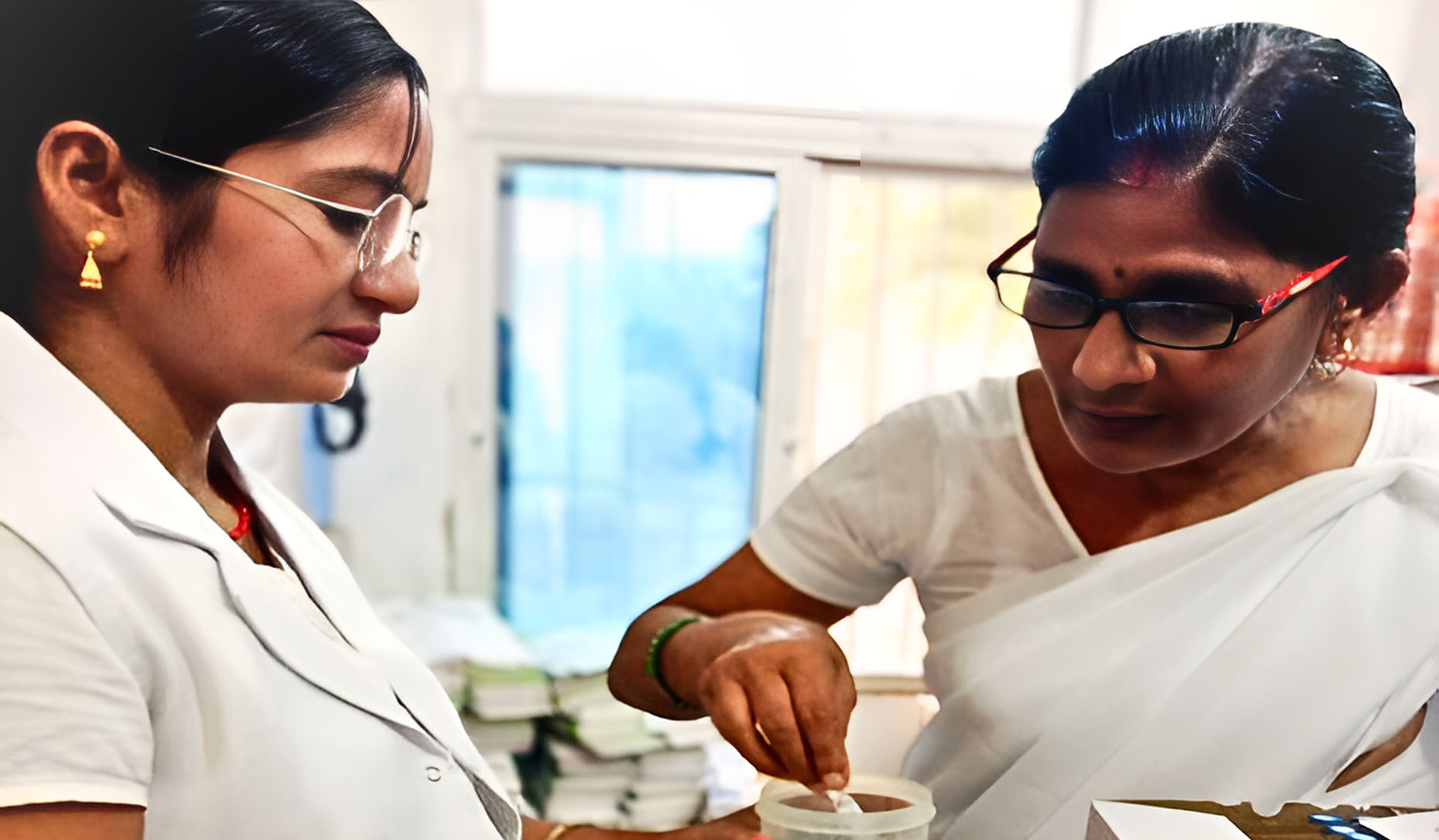WARMTH AT THE COLD CHAIN POINT – HOW REKHA KUMARI CHISELLED SKILLS TO MAKE A GOOD FIT AT WORK

SITUATIONAL INSIGHTS
Cold chain assessment was an elemental part of the diagnostic process. It was evident to observe the management at all stages right from the system of storing and transporting vaccines at recommended temperatures from the point of manufacture to the point of use. Post extensive examination, the gaps were noted at logistical, infrastructure and supervision level. A systemic transformation was required for which our team pitched in to monitor accurate management of stock records, safe storage of vaccines and its timely distribution.
A Cold Chain Point (CCP) houses vaccines for Routine Immunization, is well equipped with Ice Lined Refrigerator (ILR), Deep Freezer (DF) and is managed by a trained Cold Chain Handler (CCH). The handler is required to maintain the temperature of the cold chain, oversee the distribution of vaccines to the vaccine site and maintain the required stock. The functions of the Cold Chain Point are to indent, store and further distribute vaccines, diluents, and other logistics to the session sites. The cold chain handler ensures that the required number of vaccines reach the Primary Health Centre (PHC) and other cold chain points on time.
One such bright cold chain handler Rekha Kumari, works with dedication at PHC Govindpur in Nawada, Bihar. But there was a time when Rekha felt helpless at work. She says, “Vaccine storage and management are significant elements for ensuring vaccine potency for RI program’s success. Various challenges crop up in management of the cold chain, arising from logistic barriers and improper infrastructure. It is difficult to facilitate the timely dispatch of the vaccines, a day prior to the RI session.”
Today, Rekha exhibits dexterity at work. She is managing the cold chain well. There was a need to channelize the cold chain. The credit goes to her keen interest and quick adaptability skills. She was nurtured by trainings on functioning of ILR, DF, store keeping and inventory management. However, months ago, this was not the situation. At times, the vaccine courier failed to reach on time. Rekha is quick enough to contact the concerned official to know the reason behind the delay. She also informs the Medical Officer In-Charge (MOIC) or Block Health Manager (BHM) and if required, she arranges for alternate means to dispatch the vaccines.
She adds, “It becomes tough to streamline the things in a short time if the vaccine courier fails to reach the PHC on the session day. However, with the support of the MOIC, BHM and the Block Coordinator, we manage it.”
After the RI session, in the evening, the vaccines are sent back to the PHC from the session site along with the tally sheets. Rekha makes sure to update the vaccine stock register by matching the remaining vaccines (full vial and partial vial) with the vaccine distribution register. She also matches the stock updated on eVIN portal with the physical stock present to avoid any gaps. Besides, she keeps record of the entire tally sheet and documents from field. This information is then further shared with the MOIC or BHM who inquire from the ANM about it. Rekha also investigates the dry storage areas that include the storage of syringes and diluents ensuring they are safely stored and are accessible. She matches the remaining vaccine count with the tally sheet. Based on the tally sheet, she prepares the tally summary sheet.
“On the vaccination day, I reach the PHC in the morning for vaccine and logistic distribution. The required number of vaccines as per the due list is dispatched through the vaccine courier. As soon as the vaccine is sent, I pen down the exact time of dispatch” quotes Rekha.
Now that she has been capacitated, from the last few months a shift in management of the cold chain is seen. She concludes, “The existing gaps in the system have been addressed but need to be maintained, this makes the process of facilitation easier.” The PCI team has been providing support to cold chain handlers like Rekha Kumari in transforming the management and supervision of the cold chain points. Besides, the training sessions provide confidence in addressing system-wide barriers and in ensuring the timely vaccine supply to the session day.
Author – Ankit Kumar (Block Coordinator) & Kamta Pathak (Programme Officer)
Co-author – Swati Savarn (Consultant)
Editor – Ronnie Clive Francis (Manager – Communication KM)
